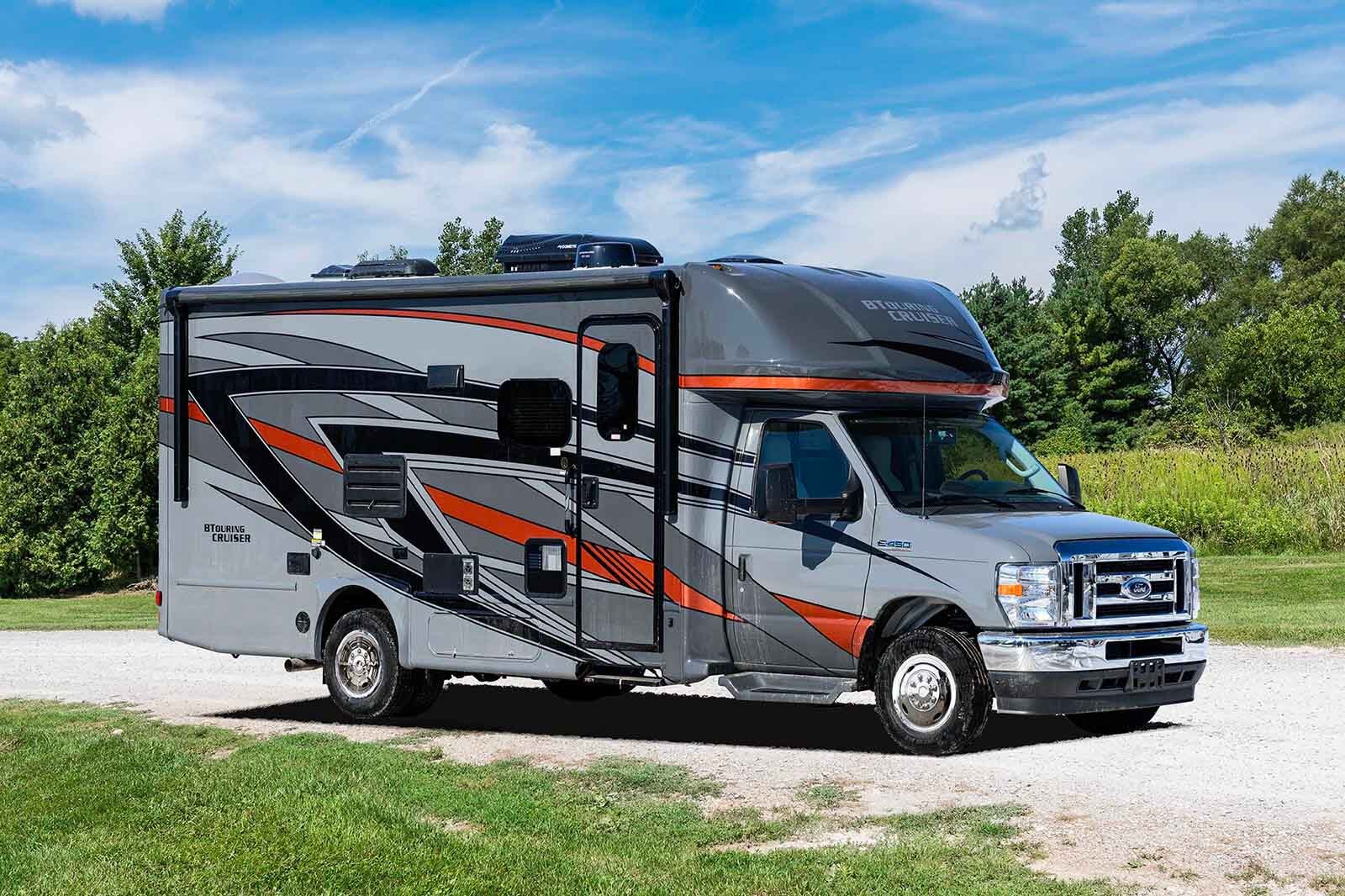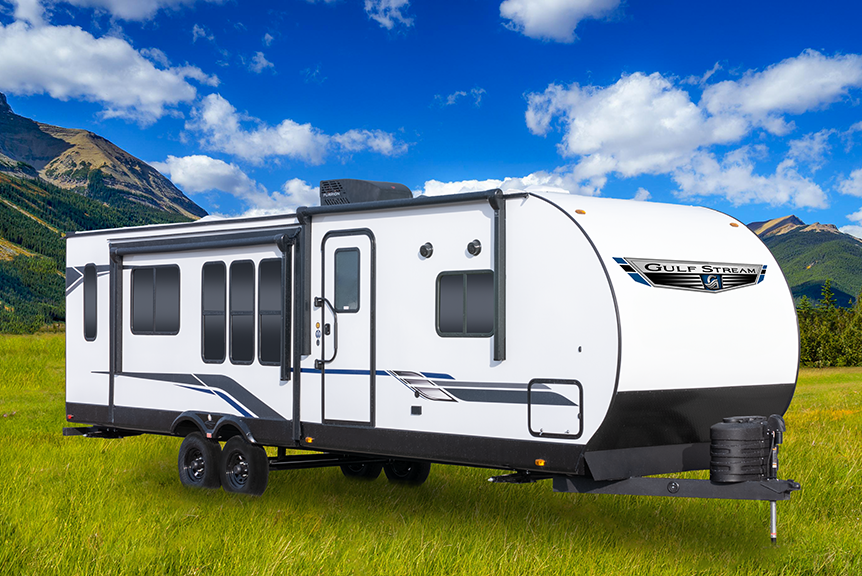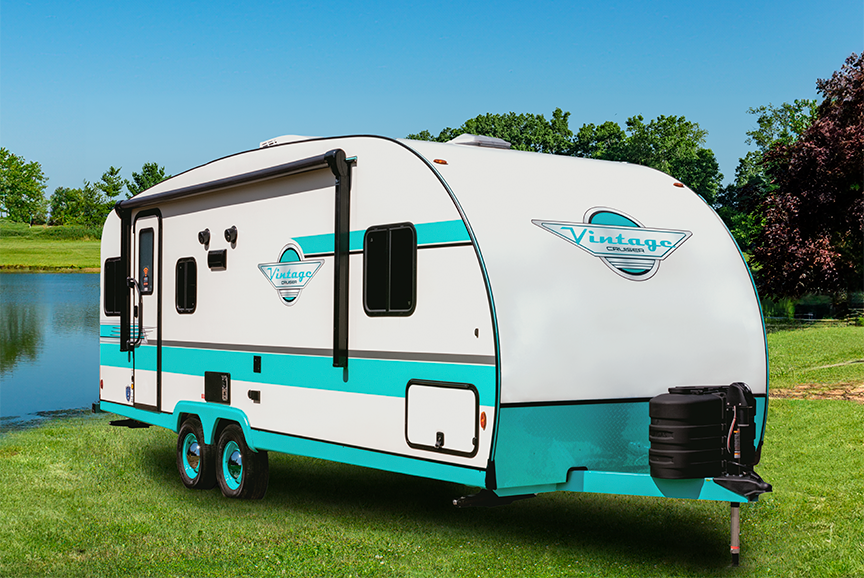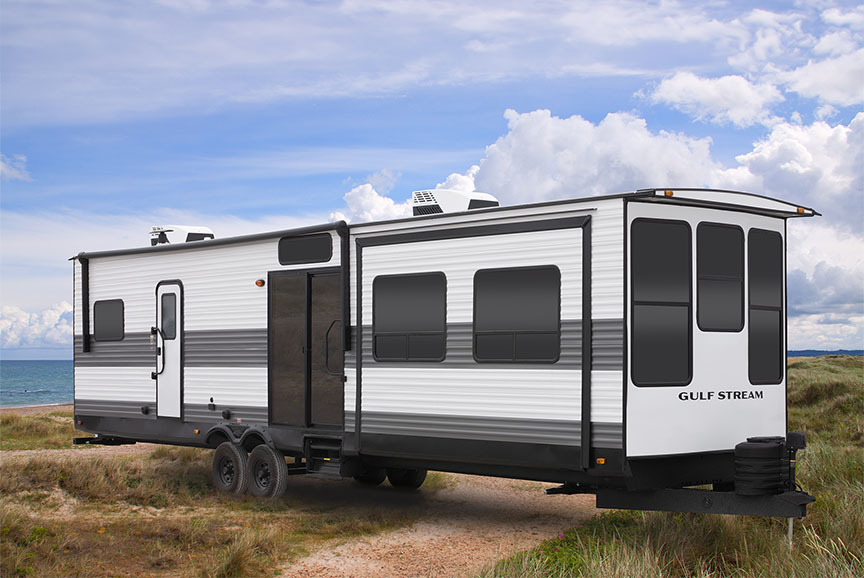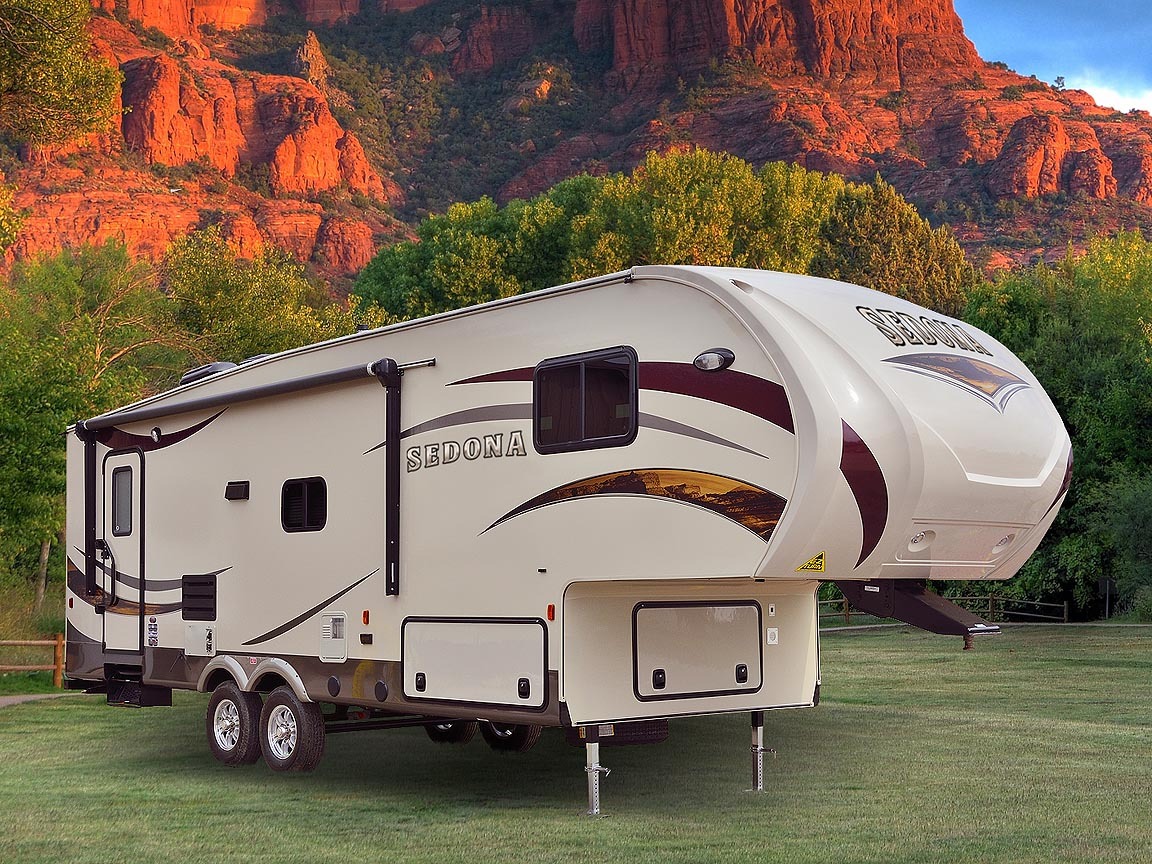RV Refrigeration Basics
(Back to Table of Contents)
RV refrigerators live a different life than their distant cousins that occupy a spot in residential kitchens. The refrigerator in your kitchen at home likely never moves an inch during its lifetime, and has a constant source of 110V electrical power to keep it happy and cold, all while sitting in one place for years on end, enjoying an air conditioned and heated environment that make its job as easy as possible.
On the other hand, your RV refrigerator often sits unused for long periods, and when it’s needed, is subjected to all the bumps and grinds you find driving on the highways and byways of your journeys. Importantly, many RV refrigerators use a completely different form of cooling than your household fridge. can use Instead of the 110-volt power and compressor cooling found in your fridge at home, many RV refrigerators use LP gas and absorption cooling. Absorption cooling conserves electrical power, and enables you to run your refrigerator when electricity isn’t available; a capability that is often essential when you are camping.
Most RV refrigerators used today are “two-way,” meaning they can use either LP gas or 12-volt power to provide the energy needed for absorption cooling, giving you flexibility and independence that is ideal when you are camping. Technology has also provided us with “three-way” absorption refrigerators, that can use LP gas, 12-volt DC power, or 110-volt AC current.
It’s important to realize that, in spite of its advantages for campers, absorption cooling is less efficient than the compressor cooling the refrigerator in your kitchen at home. Because of this difference, it makes sense to reset your expectations and adjust a couple habits when using an RV refrigerator and absorptive cooling. Here are some basic guidelines to keep in mind:
-
No matter what power source (LP gas, 12-volt DC/battery, or 110-volt AC power), is being used to cool your absorption-style RV refrigerator, it will cool SLOWER than your compressor-style refrigerator at home. Similarly, warm items will take LONGER to cool off in the RV fridge. It’s wise to turn the refrigerator on a day or two before departure so it is as cold as possible when you load the items you want to refrigerate.
-
The absorptive cooling process requires that the refrigerator be as level as possible to work its best. There are several other good reasons to level your rig, but this is high on that list.
-
Your RV refrigerator is FAR SMALLER than your home fridge, so there is much less cool air in it to do the job of cooling. That smaller size means you dump MUCH of the cool air out of your RV fridge every time you open it.
-
It’s best to let hot items cool off somewhat before you put them into the refrigerator whenever possible. In broader terms, cold items tend to cool your refrigerator; warm items warm it, something to keep in mind when you’re shopping for food and supplies.
-
Whenever possible, freeze water bottles, meat, and other appropriate food items in your home freezer in advance so they can make the cooling process easier.
-
It’s unrealistic to count on an RV refrigerator to freeze food or maintain sub-freezing temperatures for extended periods of time.
-
A bit frustrating but true: It’s counterproductive to open up the refrigerator frequently to make sure it is working properly. As a rough guide, an absorptive RV fridge can cool to 42 degrees in 12 hours, and to freezing temperatures in 24 hours.
As you might imagine, some campers prefer to have access to 110V electrical power whenever they use their travel trailer. For these RVers, a compressor-style refrigerator (more like your residential appliance) may be the best choice. Compressor refrigerators for RVs typically run when plugged into a suitable AC power source, offered with virtually every commercial campsite, and available from a suitably powerful generator. Some compressor-style RV refrigerators can use battery power too, though the electrical drain of a refrigerator makes batteries a short-term solution.
The availability of compressor-style “residential” refrigerators for RVs can cause some confusion that should be clarified. Check the paperwork accompanying your refrigerator for detailed information.
“Residential” refrigerators often mean refrigerators that only run when continuously connected to 110-volt AC power, as described above. These are true residential refrigerators typically built for household use. They are often found in destination-style trailers, park model RVs, etc.
“Residential” refrigerators may instead refer to the size, style, and capacity of the fridge rather than the method of cooling. You’ll want to ask specifics to know what you’re getting.
Getting the most out of an absorption-style refrigerator
Here are some of the maintenance items that may impact the cooling of your RV fridge. Do-it-selfers will find many videos and repair instructions online to explain repairs in detail. For those who don’t feel confident enough to break out the tools, most RV dealers can handle refrigerator repairs quickly.
- As mentioned elsewhere, your RV (and the absorption style refrigerator in it) need to be as level as possible for LP gas-based absorptive cooling to work well.
- The refrigerator includes an LP gas pilot light to ignite the burners that provide the energy to cool. This pilot light uses as little gas as possible, which can make it prone to going out.
- The cooling system also uses a thermocouple to control the pilot. If the thermocouple is failing, the pilot light won’t run dependably.Absorption uses a closed system of cooling solution that uses pressure changes and circulation to move heat out of the fridge.
- The plumbing in the system can develop leaks that will significantly reduce cooling efficiency.
- The ammonia component of the cooling solution can degrade over time, greatly inhibiting the cooling process.
- The LP gas burner that provides the pressure changes used in the absorptive cooling process can fail over time.
- The efficiency of LP gas cooling falls off as altitudes go up. It’s suggested that AC power be used at elevations above 5,500 ft.
Residential-style compressor refrigerators
Because these refrigerators are in fact household appliances, repairs are best left to trained service personnel. Beyond that, make sure the refrigerator is well-anchored to the floor or wall so that it won’t shift or fall while on the road. Use common sense to load the space to reduce the chance that contents will topple and spill while you’re on the road.

